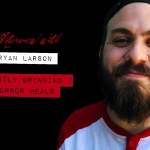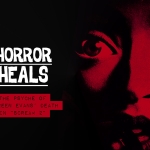Want to feel good about your horror obsession? Here are five scientifically-backed mental health advantages of watching horror films.
For many, the appeal of horror films is an enigma wrapped in a mystery. At first glance, seeking entertainment in narratives designed to terrify, shock, or disturb seems counterintuitive. Yet, the allure of horror movies persists, captivating audiences around the globe and generating a devoted fanbase.
In our fast-paced, high-pressure world, finding outlets for stress and anxiety is more important than ever.
Turn on the news at any day or time, or simply spend some time on social media, and you’ll be inundated with real-life horror that often feels overwhelming and painfully bleak.
For students navigating the complexities of academic life, the pressure can be overwhelming, leading to a search for unconventional relief methods. Between attending lectures, keeping up with reading assignments, and utilizing coursework writing services to stay on top of their academic game, students are in a constant battle with stress. When it comes to those of us already in the workforce, the struggle is real — between mass layoffs, economic hardship/uncertainty, a brutal job market, inflation, and the rising cost of just trying to survive; it’s not hard to understand why so many of us seek a healthy escape.
Horror films offer a unique form of escapism that can, paradoxically, induce a sense of calm. By engaging with horror, viewers can experience a controlled form of fear in a safe environment, allowing them to confront anxieties head-on and feel more resilient.
1. The Cathartic Effect of Horror
This is a topic we write about a lot because few fail to realize how healthy watching horror can be. Because of its association with violence and onscreen brutality, the genre often gets a bad rap for being harmful and contributing to real-world problems, while horror fans can face shame and stigmatization. But the truth is, horror has been proven repeatedly to be far more healing than harmful.
Especially when it comes to mental health, watching horror has been shown to have a positive effect — providing a safe and effective way to manage stress, anxiety, and a feeling of being overwhelmed by life.
One of the key mental health advantages of watching horror films is their cathartic effect. The concept of catharsis, dating back to Aristotle, suggests that experiencing intense emotions vicariously through art can lead to a purging of negative feelings.
Horror movies, with their intense emotional arcs, offer a playground for such catharsis.
As viewers navigate the fears and anxieties presented on screen, they engage in a process of emotional release. This experience can lead to a decrease in anxiety, as the act of facing one’s fears — even in a fictional context — can bolster a sense of control and resilience.
Whether you’re a student dealing with academic pressures, a professional trying to navigate career stress, or someone struggling with the constant everyday terrors of life, horror films can serve as a pressure valve, releasing built-up stress and providing a temporary escape from the demands of the real world.
2. Boosting Brain Chemistry and Social Bonds
Interestingly, the benefits of horror movies extend beyond catharsis. The adrenaline rush associated with fear can also have a positive impact on brain chemistry. The release of adrenaline and other stress hormones during scary scenes increases heart rate and alertness, akin to the effects of physical exercise.
This biochemical response can lead to improved mood and a sense of invigoration.
Additionally, horror films often promote social bonding. Watching scary movies with friends or in a group setting can lead to increased feelings of camaraderie and empathy as individuals share emotional experiences and offer mutual support.
This sense of community is especially beneficial for those who feel isolated or struggle with social anxiety.
Interestingly, one of the most prominent themes in horror is isolation — that sense of being alone or separated from others, disconnected from the world, either literally or figuratively. Isolation makes us vulnerable, resulting in a sense of helplessness that amplifies the horror of any situation. This can be reflected in physical isolation, psychological isolation (when a character feels alone, even surrounded by people), or social isolation (when a character is marginalized or excluded in some way, often due to discrimination).
While horror is at its best reflecting this sense of isolation and alienation that so many of us can easily relate to, watching horror creates a unique empathy that helps us confront and manage our own anxieties. This shared sense of humanity and the understanding of the universality of fear and loneliness can, interestingly, make us feel much less alone.
3. Experiencing Controlled Fear and Mastery
Another surprising advantage of horror films is the opportunity they provide for experiencing controlled fear. In a safe environment, viewers can confront frightening scenarios and learn to manage their reactions to fear.
Research links the regular consumption of horror entertainment with greater resilience in dealing with difficult situations. In fact, a 2020 study found people who engaged more frequently with fear in a fictitious form, like horror fans, displayed better psychological resilience and less psychological distress during the COVID-19 pandemic.
The process of facing and overcoming fears, known as mastery, can have long-term benefits for mental health. By repeatedly exposing themselves to controlled scares, individuals can desensitize themselves to certain fears and anxieties, increasing emotional resilience.
Mastering the art of managing fear through horror films can translate into strong coping mechanisms for dealing with stress and challenges in life, work, and academic settings.
4. Enhancing Empathy and Fostering Healing
Horror films often serve as a mirror to societal anxieties, addressing themes such as existential dread, the unknown, and the fragility of the human condition. Engaging with these themes can foster critical thinking and encourage viewers to confront and reflect on broader societal issues.
Horror films also play a unique role in enhancing viewers’ emotional intelligence. This genre often requires viewers to interpret characters’ emotions and motivations, navigate complex moral dilemmas, and understand the psychological underpinnings of fear.
By engaging with these narratives, viewers can develop greater empathy and emotional awareness, which are invaluable skills for personal development and academic success.
Recent studies have even begun to explore the therapeutic potential of horror films, especially for individuals dealing with anxiety and PTSD. Watching horror movies can, paradoxically, provide a controlled environment for confronting and processing traumatic experiences.
The vicarious experience of fear and survival can empower viewers, giving them a sense of triumph over adversity. This process, known as narrative therapy, highlights the power of storytelling in healing and personal growth.
5. Horror and Creativity: Unlocking the Imagination
Another less discussed but significant benefit of watching horror films is their ability to stimulate creativity. The unique and often bizarre worlds created in horror cinema challenge conventional thinking and push the boundaries of imagination.
According to LinkedIn, horror films can stimulate intuitive personality types, who tend to let their imagination run wild and look for hidden meaning. Horror stories can also allow people to experience fear in a safe or controlled context, which can help them explore their limits and confront their anxieties without real-world consequences
For students, particularly those in creative fields such as writing, art, and film production, horror movies can catalyze imaginative thinking and innovative ideas. The genre’s exploration of the unknown and the forbidden encourages viewers to think outside the box. It can inspire creative projects that draw on the atmospheric, thematic, and narrative elements unique to horror.




















Follow Us!